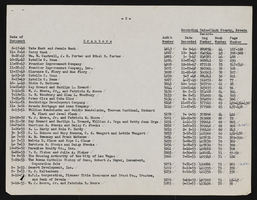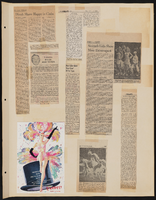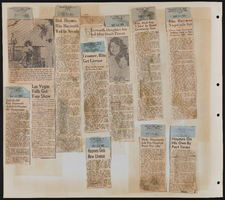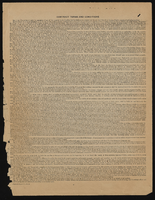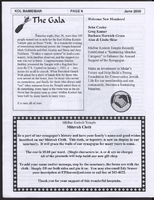Search the Special Collections and Archives Portal
Search Results
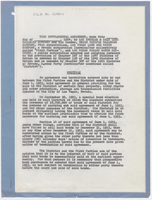
Supplemental agreement (blanks not filled) between Los Angeles & Salt Lake Railroad and partner companies and the Las Vegas Water District, C. L. D. No. 11362-1, 1954
Date
1954
Archival Collection
Description
The purchase contract for the Las Vegas Land and Water Company allows for the contract to be annulled if its bonds are not sold by December 31, 1953. This contract rescinds that deadline, allowing as much time as needed for the sale of the bonds. Agreement that all parties will ignore the provision that any party can terminate the agreement if the bonds do not sell by May 1, 1954.
Text
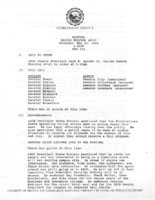
Meeting minutes for Consolidated Student Senate University of Nevada, Las Vegas, May 26, 1988
Date
1988-05-26
Archival Collection
Description
Includes meeting agenda and minutes. CSUN Session 18 Meeting Minutes and Agendas.
Text
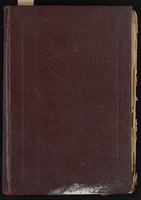
Bluebell Girls: scrapbook of newspaper clippings and photographs
Date
1939 to 1960
Archival Collection
Description
From the Margaret Kelly Collection on the Bluebell Girls, MS-00604. The scrapbook includes newspaper clippings about the Bluebell Girls, Folies-Bergère, and dancer Catherine Dunne's experiences in Milan, Italy at the start of World War II.
Mixed Content
Pagination
Refine my results
Content Type
Creator or Contributor
Subject
Archival Collection
Digital Project
Resource Type
Year
Material Type
Place
Language
Records Classification

